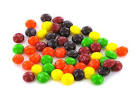
![]()
Welcome • |
About
Us • |
••• The International Writers Magazine - Our 20th Year: Living with Diabetes
15 Skittles
• Sydney Moreano
A medical timeout in volleyball is just three minutes. And unless a player’s injury is painstakingly obvious like a broken ankle, most referees do a lengthy interrogation to find out if the timeout is medically necessary. So, instead of immediately treating my low blood sugars, I have to waste several minutes explaining my Type 1 Diabetes. Then, I have a scant three minutes to down a fun-size pack of Skittles, waiting for my blood sugar to rise, knowing that every low blood sugar I have ever had took at least fifteen minutes to return to normal. The clock is ticking. I throw that candy back like a freshman does vodka shots at a frat party. Then, I hustle back onto the court, playing through the fatigue.
I never once took more than those three allotted minutes because, to me, that meant risking everything I had worked for. Those low blood sugars during volleyball season made me mentally tough, more and more able to push through my physical weakness with each timeout. In that sense, diabetes made me a fighter, teaching me not to waste time waiting for my body to bounce back, like some sort of diabetic Apollo Creed. But same as the boxer, I’m not sure this endurance is always a good thing.
Low blood sugars make me feel weaker than I have ever felt in my life. I temporarily lose the mobility of my body and the agility of my mind. It starts with a gut feeling that something is physically off, followed by a mental curse word, and decision to ignore it for a few minutes. Then, my hands begin to shake. It’s harder and harder to keep my head up, or to walk, especially quietly and without dropping things. I am like a Parkinson’s patient trying to sip a to-the-brim cup of tea without spilling. My voice waivers and snaps as I struggle to communicate or deal with other people’s questions. The ultimate test is to try and hold my hand level in front of my eyes-- fail this, and I have to go grab the Skittles.
I wait for my blood sugar to rise. It really helps if the people I’m with shut up. It really really helps if the world doesn’t stop to try to assist me unless I ask for it. It really, really, really helps if I am left alone to sit and struggle. A low blood sugar is no time to be fielding questions like Sarah Huckabee Sanders.
My preferred sugar source switches every couple of years because of how sick of them I become: first was Skittles, then Juicy Juices, then orange juices, then glucose tabs, now gummy bears. Each of these are associated with that shaky, weak feeling, and I stop being able to stand their sweet tastes after a certain number of lows. For me, they are metaphorical peas-- a vegetable my taste buds opposed so adamantly as a child I wouldn’t dare touch them in my adult life.
Throughout the low, there is also this deep fear. The fear of what happens if my body can’t fix itself, a fear that began a decade ago with my diagnosis. It hides at the bottom of my belly like the Loch Ness Monster in its Scottish lake. I fear if my blood sugar gets too low, I will be unable to ask for help and, unfortunately, have no treatment near me. It then continues to drop until I become unconscious and I slip into a coma. If nobody discovers me in time, that coma causes my death.
I know it could happen. But I still hide the low blood sugar’s physical and mental impact. And since my volleyball days, I have become really, scarily good at it.
Let’s say I had taken the fifteen minutes my body needed and sat down on the sidelines with my knee pads pushed down and my head in my lap. What happens when I, the captain setter, who all of the plays revolve around, decide to stop and treat my diabetes for longer than the game’s rules allow? The moment the backup has a good game, it’s all over for me. I am replaced. It is easier without me, and until there is a cure it will always be easier without me.
I have spent my life trying to prove that diabetes doesn’t slow me down-- even though it does-- not because I want to, but because, at the end of the day, I have to compete.
© Sydney Moreano May 2019
College of Charleston Honors '19
More comment
no liability accepted by hackwriters.com or affiliates.

